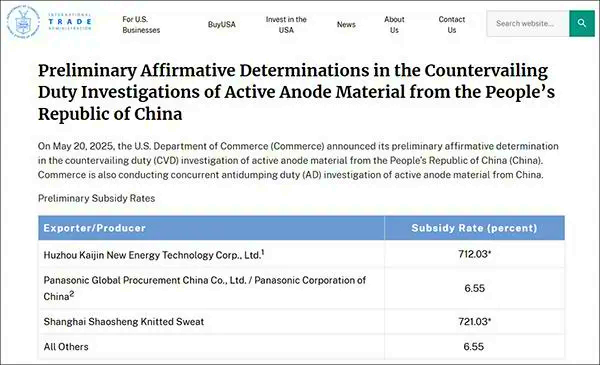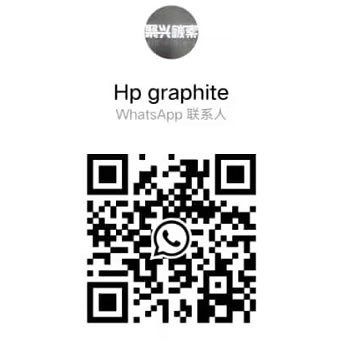【Graphite】It's Happening Again: The U.S. Targets Chinese Battery Materials

Artificial graphite electrodes are primarily used in electric arc furnace (EAF) steelmaking, serving as a crucial high-temperature conductive material. They are also widely applied in the aluminum industry, electrolytic cells, and chemical equipment as conductive and heat-resistant components. With the rise of new energy and environmental protection demands, artificial graphite electrodes play an increasingly vital role in efficient, energy-saving smelting and green steel production.
【Graphite】It's Happening Again: The U.S. Targets Chinese Battery Materials
Bloomberg reported on May 21 that the U.S. Department of Commerce made a preliminary ruling on May 20, determining that key battery components from China received subsidies—paving the way for potential countervailing duties. Experts interviewed by Global Times say the U.S. is using subsidies as a pretext, while the real motive is political.
On May 20, the U.S. Department of Commerce announced its preliminary decision in the countervailing duty investigation on active anode materials from China. The announcement claims that two Chinese companies did not fully cooperate with the investigation and were assigned subsidy rates of over 700% based on "adverse facts available." Other Chinese firms were given a subsidy rate of 6.55%.

Active anode materials refer to those used as the anode in batteries and actively participate in electrochemical reactions. They are critical components in electric vehicle batteries and are mainly composed of graphite, silicon, and other materials. Bloomberg noted that China supplies the majority of the world's graphite. According to Capstone LLC, 59% of the U.S.'s natural graphite and 68% of its synthetic graphite imports come from China.
The U.S. Commerce Department launched its investigation on December 18, 2023, following a complaint from the U.S. Alliance for Active Anode Material Producers about Chinese subsidies.
Bloomberg reported that these investigations are separate from broader tariffs the U.S. is considering on trade partners, and are not related to the planned duties on semiconductors, pharmaceuticals, and other goods. In March, the U.S. House of Representatives passed the "Decoupling from Foreign Adversaries in Battery Procurement Act," which prohibits the Department of Homeland Security from purchasing batteries from six Chinese companies, including CATL and BYD, aiming to weaken China's dominance in the battery supply chain.
Industry insiders told Global Times on May 21 that China has significantly reduced export tax rebates and subsidies in recent years, and there are virtually no subsidies left in the battery and materials sectors. They emphasized that the U.S.'s actions are based on fears that if a conflict with China arises, the U.S. could be vulnerable due to reliance on Chinese battery materials.
They added that the competitive edge of Chinese companies lies in high cost-performance and a well-integrated supply chain, allowing them to produce high-quality products at lower costs. While other countries possess similar technologies, their costs are higher, and lower production volumes further increase expenses. If the U.S. imposes high tariffs on Chinese products, American customers will bear the increased costs.
Feel free to contact us anytime for more information about the Graphite Products market. Our team is dedicated to providing you with in-depth insights and customized assistance based on your needs. Whether you have questions about product specifications, market trends, or pricing, we are here to help.
No related results found








0 Replies